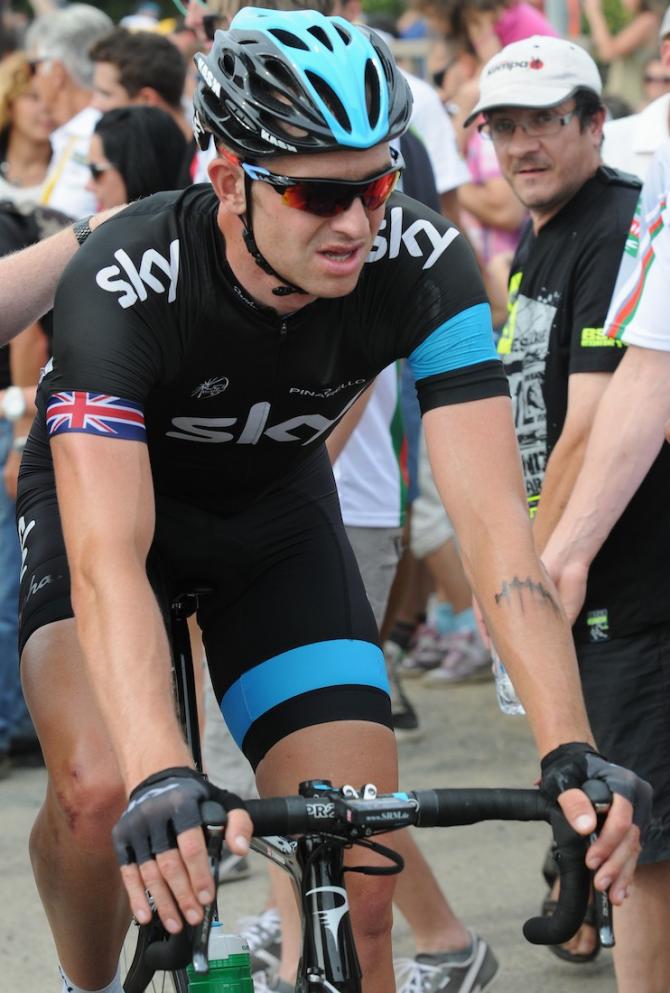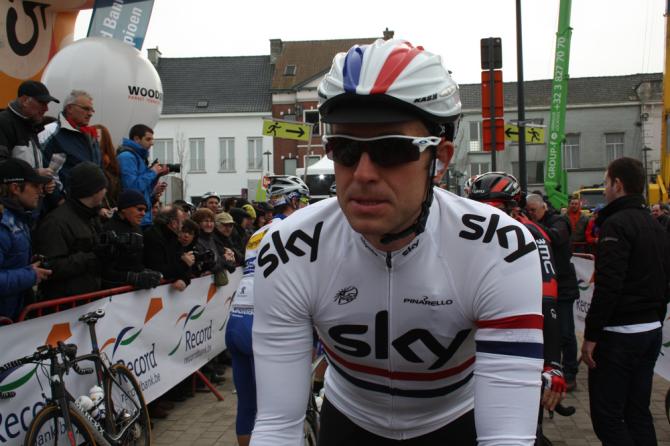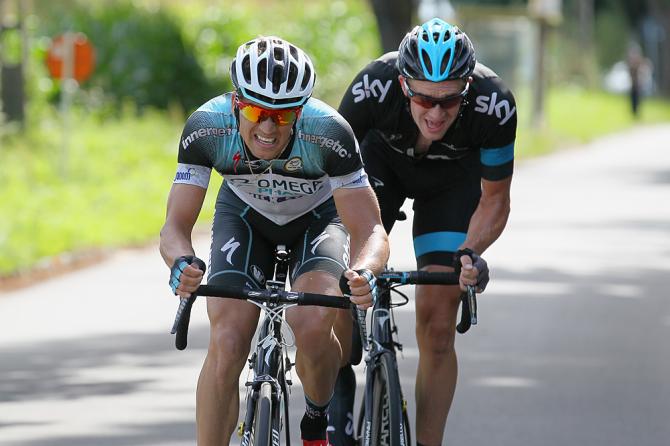Stannard believes Sky should have fewer leaders at Classics
Briton on challenge of taking on Boonen and Cancellara



Ian Stannard (Team Sky) showed the fruits of his pre-season labours on the second day of the Tour of Qatar, as he matched Tom Boonen and his Omega Pharma-QuickStep teammates pedal stroke for pedal stroke during a frenetic stage that saw the leading group cover in excess of 53 kilometres in the final hour of racing.
Keeping pace with QuickStep in Qatar is no mean feat, but it is an even more daunting proposition in April at the Tour of Flanders and Paris-Roubaix. In a bid to outflank Boonen et al last year, Sky opted to send its Classics unit to a training camp rather than race Paris-Nice or Tirreno-Adriatico. Following decidedly mixed results, that approach has been shelved for 2014.
Stannard admitted that he will be glad to have the extra racing of Tirreno-Adriatico in his legs ahead of the Classics – "I think the best way to race well is to go to races," he said – but suggested another important tweak for Sky’s approach to the monuments, namely, defining team leadership beforehand.
While Sky lacks a leader of the stature of Boonen or Fabian Cancellara, Stannard believes that the team would be well-served by establishing a set hierarchy before each individual Classic, rather than designating free roles to three or four different riders, as happened last year.
"We’ve got a lot of good riders but no-one on their level I guess either, so it’s about using that to the right advantage," Stannard told Cyclingnews. "We go into those races with a lot of leaders, if you like, but without one designated guy and that’s our downfall a bit sometimes as well.
"You look at QuickStep and Trek, they’ve got one leader and everybody rides for him. That’s the way it is, and I think we should follow a similar pattern."
Luck at the Classics being what it is – after all, Cancellara and Boonen crashed out of the Tour of Flanders in 2012 and 2013, respectively – Stannard sees the need for a back-up option, but maintains that approaching each Classic with a defined game plan is essential.
Get The Leadout Newsletter
The latest race content, interviews, features, reviews and expert buying guides, direct to your inbox!
"You’ve got one leader and one back-up plan maybe. But you’ve got to go there with one guy and really focus on the best way to get the result out of him. You can’t go there with three or four guys, [and say] ‘You’ve all got a chance, you’ve got to play it right,’ because it doesn’t work, does it?"
Change of plan
The black box of Sky’s 2013 classics campaign has been picked over repeatedly in the intervening ten months, and while their performance certainly paled in comparison to the team’s stage racing success, it was also mitigated by ill fortune. Geraint Thomas crashed at Milan-San Remo, the Tour of Flanders and Paris-Roubaix, for instance, while Stannard himself endured an untimely combination of crashes and punctures at the Hell of the North.
"I think across the board, across all the races, as an average, we did better in all the races [than in previous years], but when it came down to the crunch time in the big races, we didn’t have it and we got our arses kicked," Stannard said frankly.
"I had a bit of bad luck in Roubaix. I’d like to think that without puncturing on the first set of cobbles, and then crashing when I tried to get back up, that I would have done a better race. But you never know, and that’s not an excuse. I just intend to put it better in that race this year, that’s my objective."
Paris-Roubaix is the race Stannard has coveted ever since he finished second at the junior edition of the race behind Geraint Thomas in 2004, and the Chelmsford native would clearly like the reins of leadership for the race this year. It remains to be seen, however, what role Bradley Wiggins will play when he makes a cameo with the Sky classics squad at Paris-Roubaix.
In any case, Stannard is confident that he will be ready to perform on his return to Europe after a lengthy stint of pre-season work in Australia in the company of Thomas, Bernhard Eisel, Luke Rowe and Philip Deignan. "I was there about five and a half weeks in total, so it was a good trip," he said, agreeing that it offer some variation from the Mount Teide camps that await him later in the season.
"It’s different, you can also relax. It’s good because it’s quite a British culture out there. It’s a home from home and, like you said, different to being on a volcano," he smiled. "It was a good camp, we got some good work in and we just need to sharpen a bit now."

Barry Ryan was Head of Features at Cyclingnews. He has covered professional cycling since 2010, reporting from the Tour de France, Giro d’Italia and events from Argentina to Japan. His writing has appeared in The Independent, Procycling and Cycling Plus. He is the author of The Ascent: Sean Kelly, Stephen Roche and the Rise of Irish Cycling’s Golden Generation, published by Gill Books.